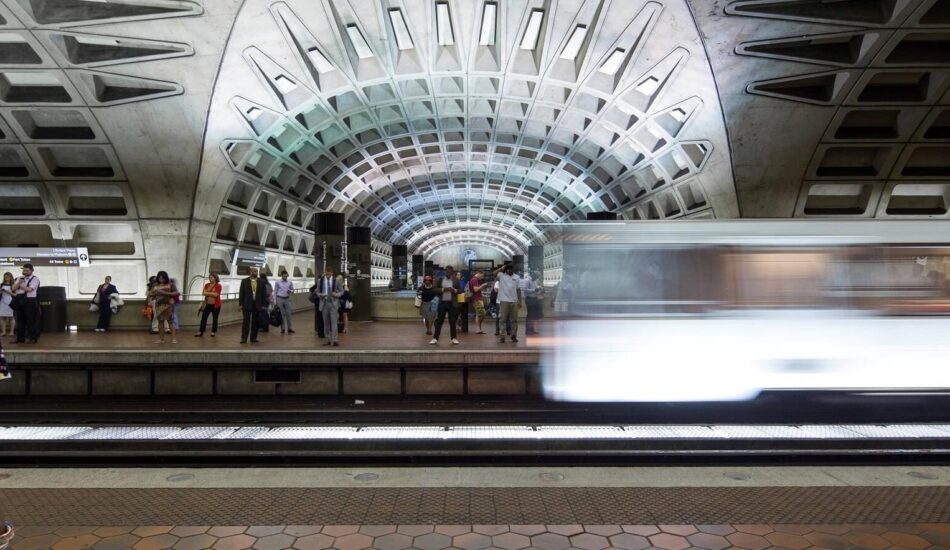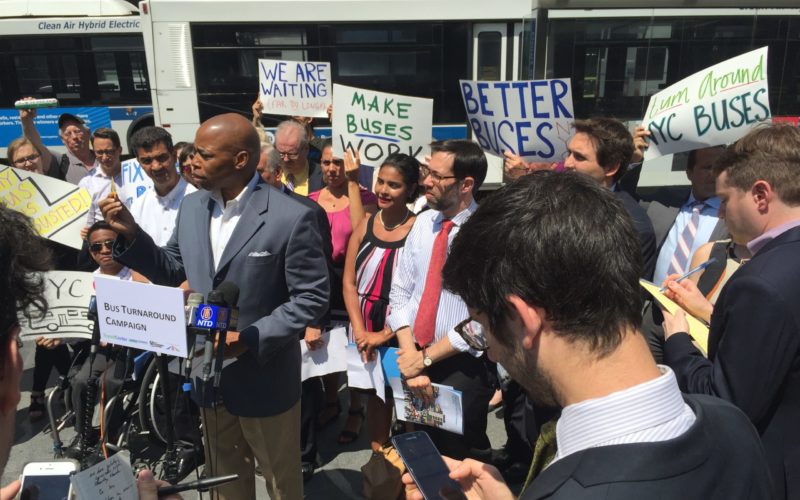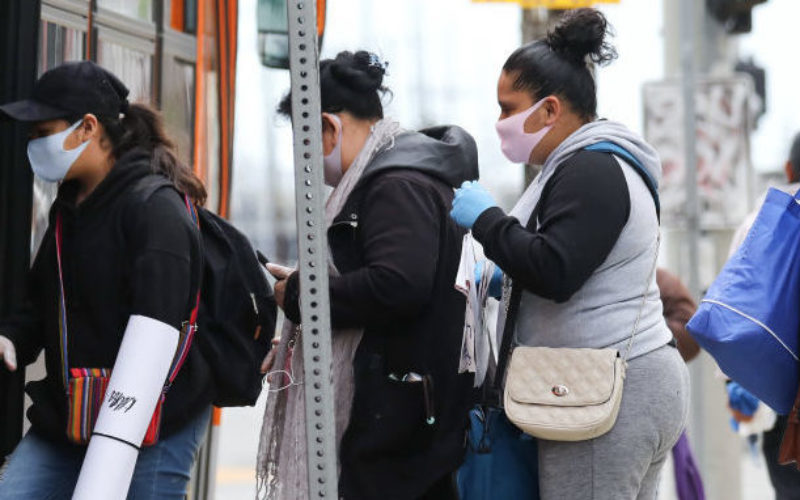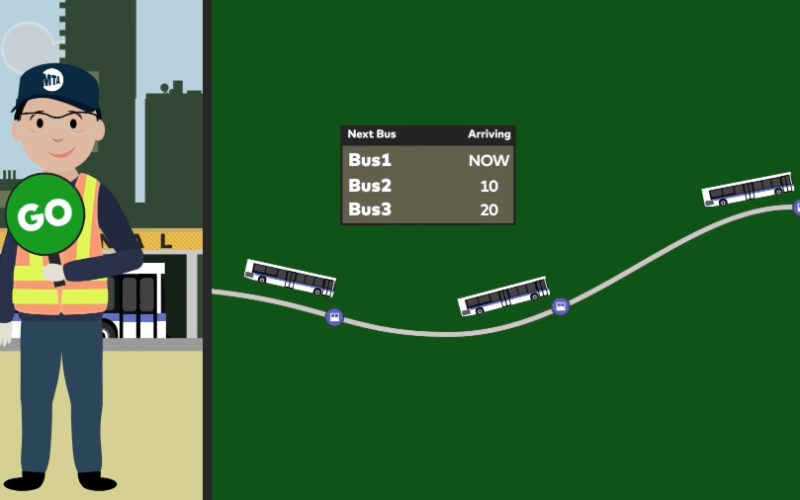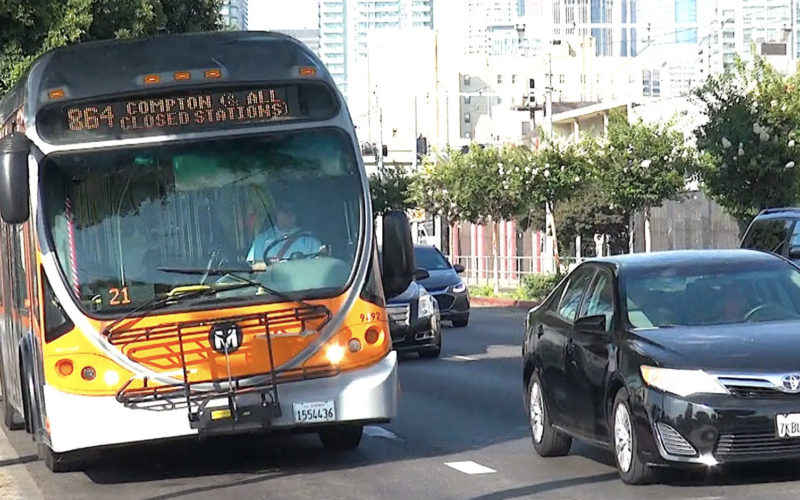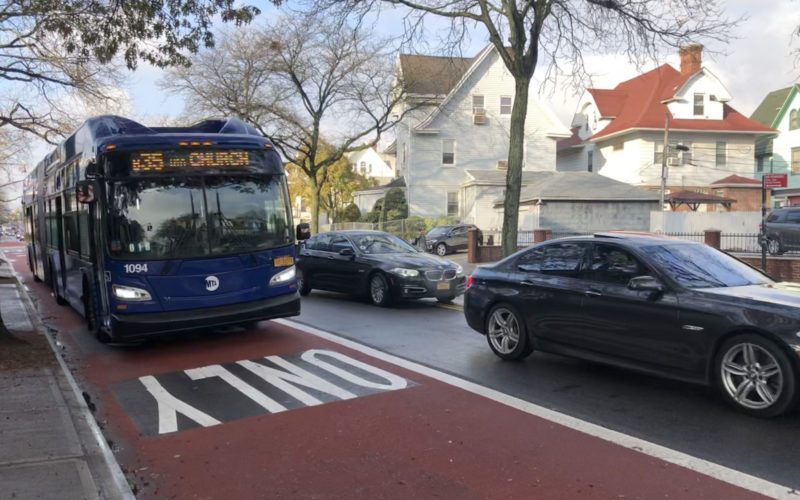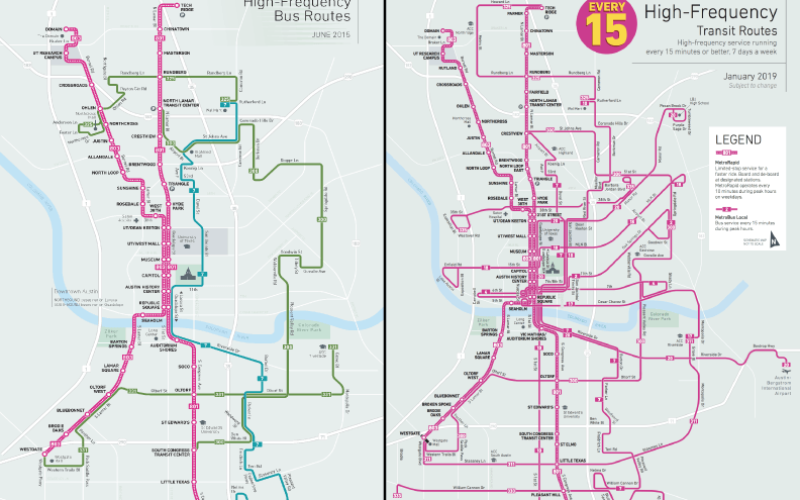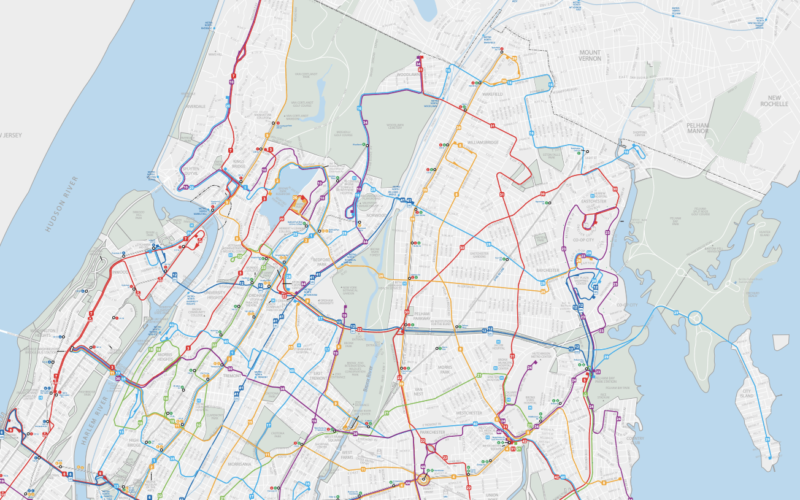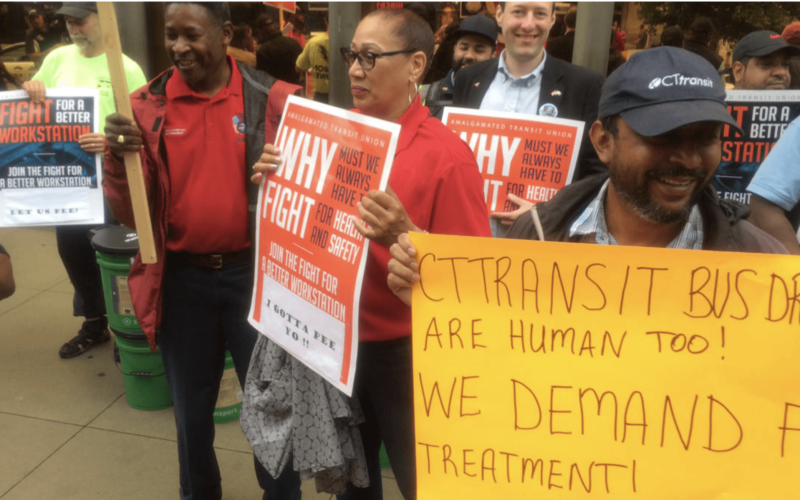The experience of being a WMATA rider has substantially improved over the last 18 months, thanks to changes the agency has made like adding off-peak service and simplifying fares. Things are about to get even better with the launch of all-door boarding later this fall, overnight bus service on some lines starting in December, and an ambitious plan to redesign the Metrobus network. But all of this could go away by July 1, 2024.
Read MoreTo create the “state-of-the-art bus transit system” of his campaign platform, Mayor Adams will have to both expand the quantity and improve the quality of bus lanes. We recommend these strategies to get it done.
Read MoreBefore COVID-19 struck, LA Metro seemed to be turning a corner on bus service with the ambitious network redesign known as NextGen. But the new budget plan signals a return to the days when Metro regularly overlooked the bus riders who make the vast majority of trips on its services.
Read MoreKeeping bus service reliable and evenly spaced is important to riders in normal times. With the imperative to minimize crowding during the COVID-19 emergency, preventing bunching and gapping is even more urgent now.
Read MoreOver the summer, LA transit riders caught a glimpse of what a more urgent approach to prioritizing bus service can do.
Read MoreNYC DOT and the MTA received largely positive grades for 2019, reflecting that the agencies have each charted a path to better bus service at the scale of the entire city.
Read MoreIn June of 2018, Austin launched a redesign of its bus network. Since then, ridership has increased 4.5%, making Capital Metro one of the few transit systems in the U.S. where ridership is on the rise.
Read MoreIn June, the MTA released a draft plan to redesign the Bronx bus network. There’s no doubt that the proposals will improve trips for bus riders. But given the gap between the current state of Bronx bus service and what Bronx bus service can be, is this plan as ambitious as it should be?
Read MoreNews recently broke that bus operators in Virginia are routinely forced to work 10 hours without a bathroom break. While this may seem the stuff of nightmares, it’s hardly unique to the transit industry.
Read More